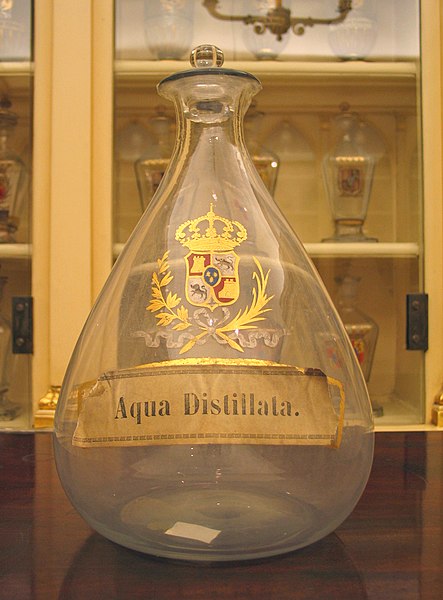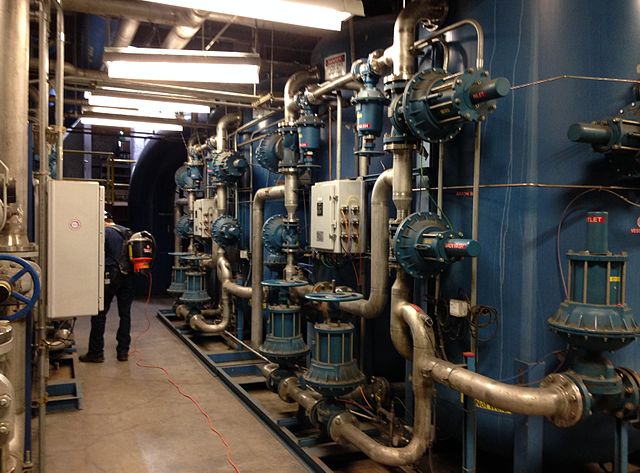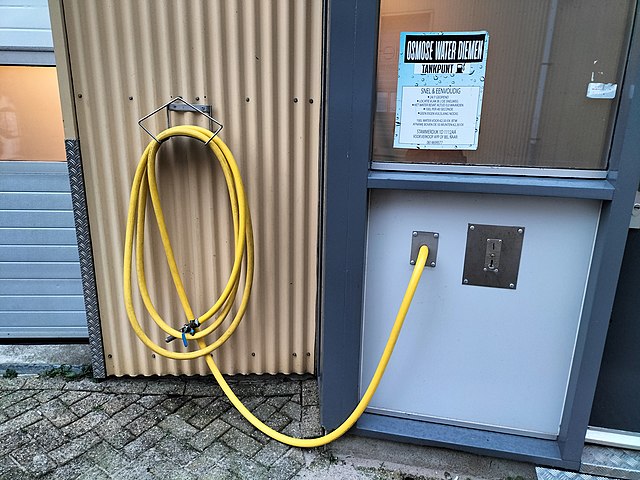Ultrapure water (UPW), high-purity water or highly purified water (HPW) is water that has been purified to uncommonly stringent specifications. Ultrapure water is a term commonly used in manufacturing to emphasize the fact that the water is treated to the highest levels of purity for all contaminant types, including: organic and inorganic compounds; dissolved and particulate matter; volatile and non-volatile; reactive, and inert; hydrophilic and hydrophobic; and dissolved gases.
Ultrapure water system validation process flow
Typical ultrapure water purification configuration in a semiconductor plant
Relationship between ultrapure water flow and wafer size
Outline for a typical water system in a semiconductor plant
Purified water is water that has been mechanically filtered or processed to remove impurities and make it suitable for use. Distilled water was, formerly, the most common form of purified water, but, in recent years, water is more frequently purified by other processes including capacitive deionization, reverse osmosis, carbon filtering, microfiltration, ultrafiltration, ultraviolet oxidation, or electrodeionization. Combinations of a number of these processes have come into use to produce ultrapure water of such high purity that its trace contaminants are measured in parts per billion (ppb) or parts per trillion (ppt).
Bottle for distilled water in the Royal Academy of Pharmacy (Spain)
Large cation/anion ion exchangers used in demineralization of boiler feedwater.
Distribution station for "Osmosis water" aimed at window cleaners





